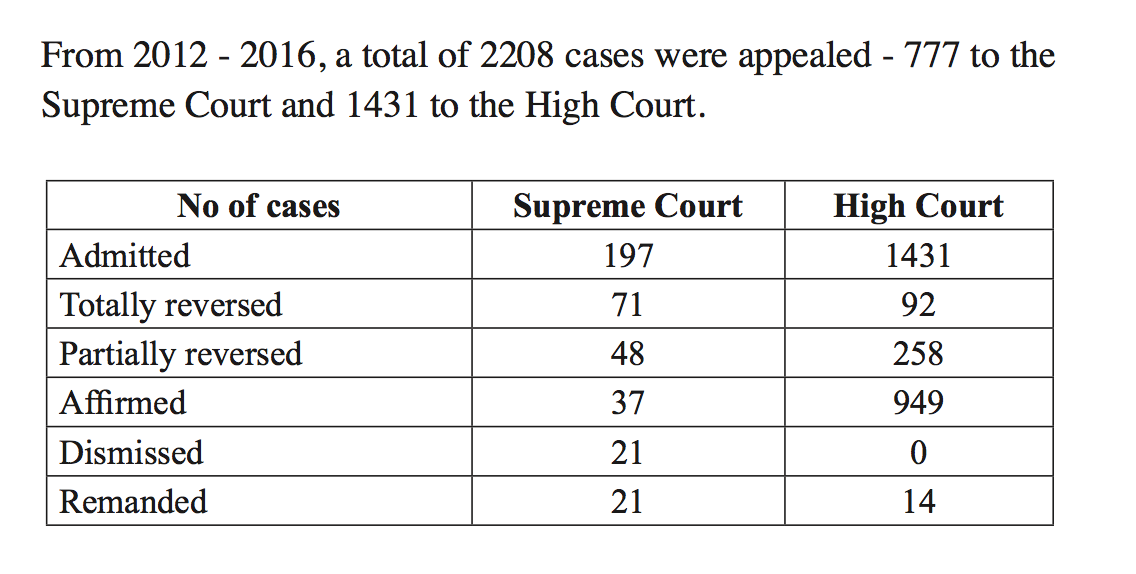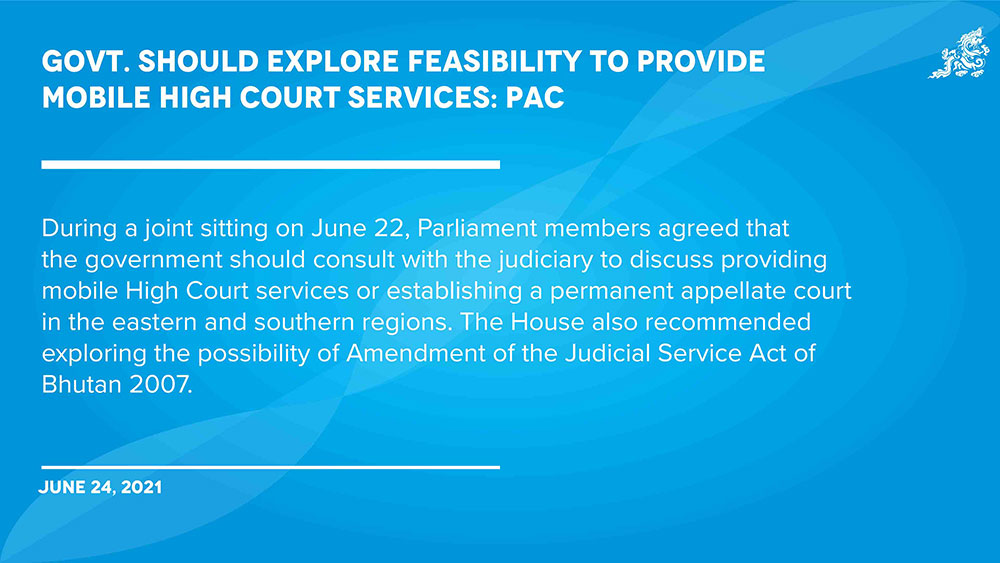Yangchen C Rinzin
The Parliament members, during the joint sitting on June 22 decided that the government should discuss with the judiciary to explore the feasibility to provide High Court services in the eastern and southern regions.
This, according to the members, could be facilitated either through a mobile bench or establishing a permanent appellate court in the regions.
Such services, members said, would help people from eastern and southern dzongkhags, who have to come to Thimphu to avail services from the High Court.
It was one of the nine recommendations made to the House during the deliberation on the review report of the Public Accounts Committee (PAC) on performance audit report on the judiciary system and practices.
The House also endorsed that the government should initiate and implement legal aid service according to Article 9.6 of the Constitution, which was never implemented.
Legal aid services would help people, who cannot afford legal fees.

With report challenges of implementing Judicial Service Act of Bhutan 2007, the House also recommended exploring the possibility to submit the Act for Amendment.
PAC review report revealed that while qualified registrars should head the registry of courts, bench clerks were performing the task in 15 dzongkhags and 13 drungkhag courts.
“It was also found that case hearings in the trial courts are not scheduled systematically and based on the preferences and conveniences of the clerks,” the committee chairperson, Paro National Council member, Ugyen Tshering said. “This has often led to delay in hearings.”
In view of an increasing number of cases, PAC recommended appointing drangpon rabjams or registrars in the dzongkhag courts to reduce the workload of drangpons.
The chairperson said this would facilitate fair, timely and efficient trials.
The House decided the government should streamline the appeal system by amending section 109.1 of the Civil and Criminal Procedure Code of Bhutan (CCPC) 2001.
A committee member and NC’s eminent member, Phuntsho Rapten, said section 109.1 should be amended so that people could appeal with specified details why they are appealing against a judgment. “The recommendation was made after most officials in the judiciary that the committee talked to recommended it.”
Members said that while a litigant may appeal to higher courts, it was evident from the appeal cases from 2012-2016 that only Supreme Court had applied the appellate process while considering the appeal cases.
Eminent member Ugyen Tshering said that other appellate courts have accepted all appeal cases without determining the legal basis of the petition leading to registration of frivolous and generic cases consuming time and resources. “This delays the judgment.”
Records reveal that a total of 2,208 cases were appealed from 2012 to 2016, of which 777 were appealed to the Supreme Court and 1,431 to the High Court. A total of 92 cases were totally reversed at the High Court and a total of 71 cases were reversed at the Supreme Court.
Almost 922 cases took more than one year to decide, of which 752 were civil cases and 170 criminal cases.
The CCPC mandates conducting preliminary hearings within 10 days of registration for criminal cases and 108 days for civil cases. However, the report stated that 1,688 civil cases took more than 108 to 946 days to conduct preliminary hearings after registration.
It also revealed 1,508 criminal cases took more than 10 to 468 days to conduct preliminary hearings.
Ugyen Tshering said the time taken for disposal of cases was attributed to a huge number of cases, difficulty in summoning litigants, allowing series of rebuttals, investigation taking longer time, adjournment, and absence of drangpons from office.
Meanwhile, the House also decided the government should review and delink Notary Public Office from the judiciary.
The committee stated that notary services were not directly related to the judiciary mandate.
All the recommendations were unanimously endorsed. The recommendations would be now submitted to the government and the government should discuss them with the judiciary.
Edited by Tashi Dema


